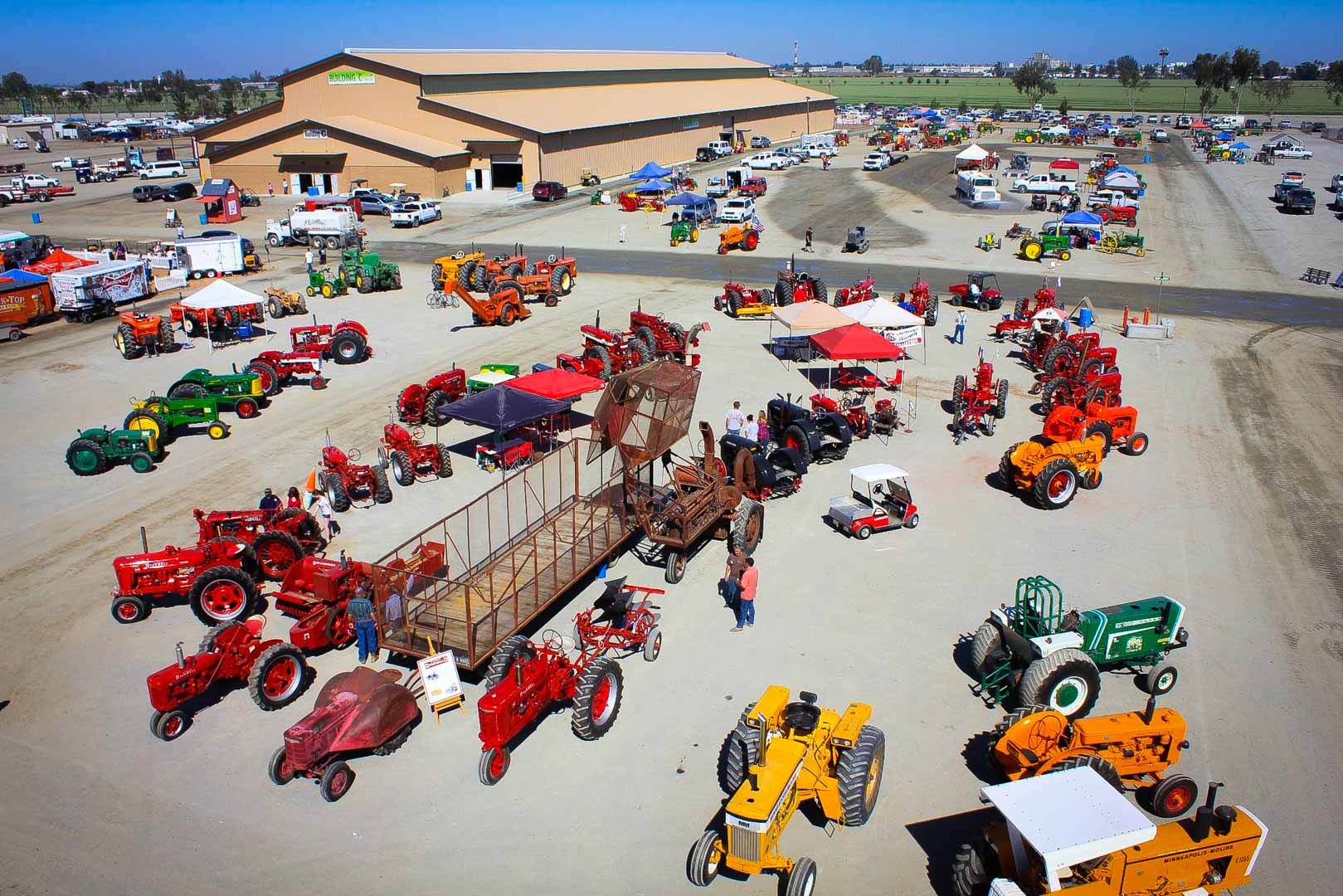The show site is being used as a drive-thru COVID-19 vaccination location
By Diego Flammini
Staff Writer
Farms.com
A popular vintage farm equipment show has been cancelled for the second consecutive year because of COVID-19.
The California Antique Farm Equipment Show was supposed to take place April 16-18 at the International Agri-Center in Tulare, Calif., but the ongoing pandemic forced its cancellation.
“The show’s steering committee did not feel confident they could deliver the show experience attendees and the tractor groups were used to and deserve,” says a Feb. 18 press release.
The show is now slated to take place from April 22-24, 2022.
Volunteers started the equipment show about 30 years ago because they wanted somewhere to go where they could appreciate vintage equipment, said Jen Fawkes, marketing manager at the International Agri-Center.
“It started out as a campout weekend and has grown to include food and activities for kids,” she told Farms.com. “We have some local dealers that bring new equipment to the show, but the show has always been about vintage tractor enthusiasts. Some of the equipment is as shiny as the day it left the showroom and some of it looks like it just came out of the field because it has.”
One producer missing the show is Tony Ramos, a semi-retired almond farmer from the Fresno, Calif. area.
He’s the show’s chairman and collects IH tractors which he shows at different events across the country.
Bringing together people who appreciate vintage equipment is the best part of the event, he said.
“I love the camaraderie, bringing together birds of a feather who have a common interest in this machinery and the stories behind the pieces,” he told Farms.com.
Ramos has more than a dozen pieces in his collection, which includes IH equipment, trucks and other implements.

Some of the pieces displayed at the Caifornia Antique Farm Equipment Show.
“I just fell in love with everything IH as a kid, from the way they sounded to the way they looked,” Ramos said. “This continued as I got older.”
One of favorite pieces is a restored Farmall H because it reminds him of his childhood.
“My father was a dairyman, but I loved row crops, so my heroes were the neighboring farmers who were out there planting and harvesting,” Ramos said. “I kept telling my dad we needed a bigger tractor to feed the cows with and bugged him so much that he bought me my first tractor, a Farmall H, from an auction. I was about 12-years-old, and my dad said I could use the tractor to feed cows and rake hay.”
Another tractor with sentimental value to Ramos is the Farmall 560.
“That’s the last tractor my dad bought while he was still alive,” he said. “So, I thought I would restore one of those in his honor.”
His love of vintage equipment has never waned.
Even today the 75-year-old prefers the vintage equipment to the modern equipment available for purchase.
“I don’t think I’ve spent an hour in my newest John Deere tractor,” he said. “With all the computers in there it just seems so foreign to me. In my opinion today’s stuff isn’t as enjoyable to drive as the vintage equipment.”
Though the antique farm show is on hold for another year, the grounds are still in use.
The 300-acre International Agri-Center is now a pop-up, drive-thru vaccination clinic in the community.
“People are coming to get vaccinated at our site five days per week from Wednesday to Sunday,” Fawkes said. “It’s unfortunate the show was cancelled but this is the ag sector’s way of giving back to help people hopefully get back to a normal way of life sooner than later.”